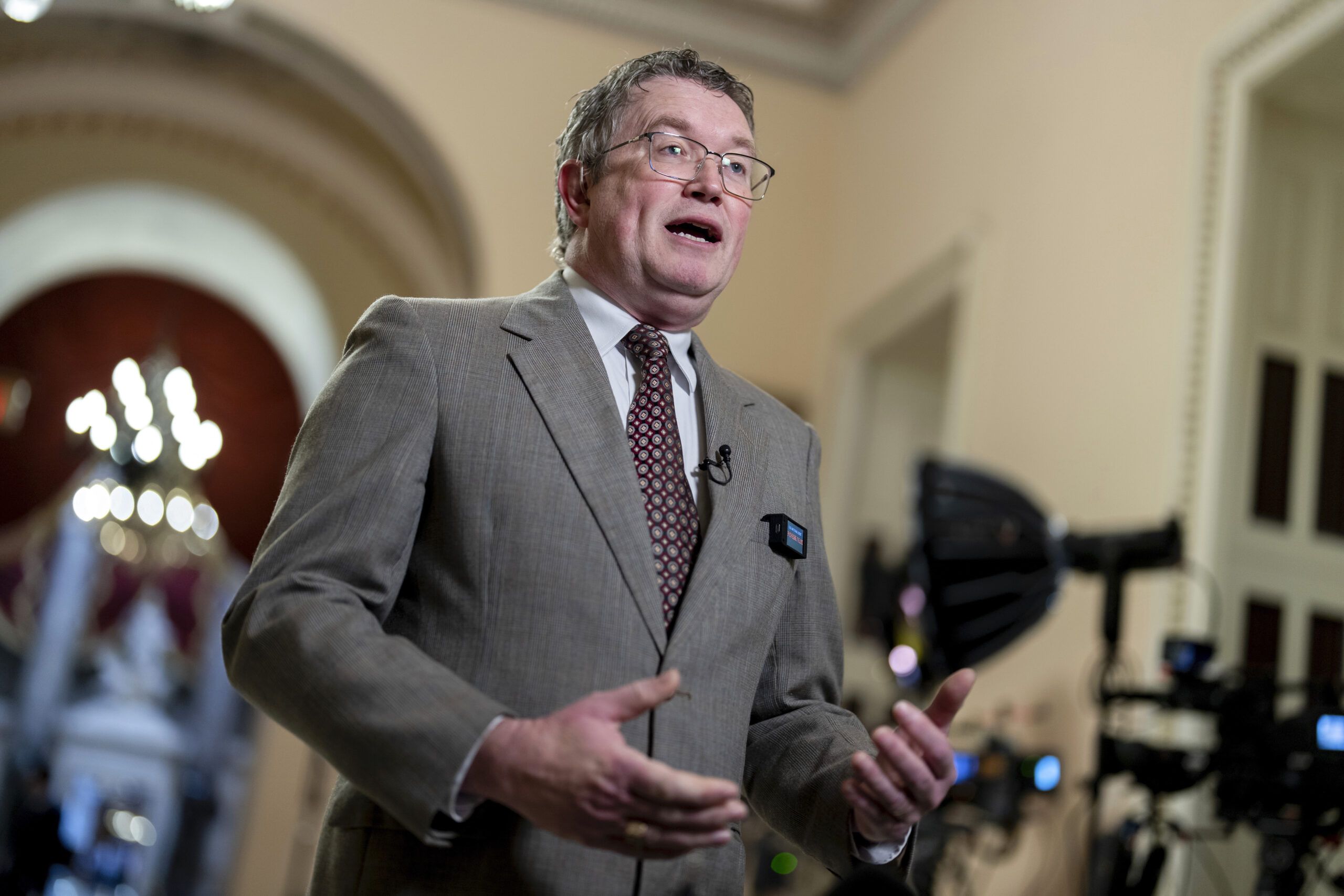

Early voting has begun for Kentucky residents ahead of the state’s primary election on Tuesday, with a handful of races attracting widespread attention in the Bluegrass State as voters solidify their November ballot.
All six House districts are up for grabs in Kentucky, with most of the incumbents not facing tough challenges for their seats. Voters will also have an opportunity to vote for their preferred presidential candidate, which could serve as a bellwether for former President Donald Trump as he enters the sixth week of his criminal trial in New York.
President Joe Biden could also face some pushback as Democratic voters consider withholding their support in protest of his stance on the Israel war.
Here are three things to watch as voters cast their ballots on Tuesday.
Kentucky could serve as bellwether in Trump’s reelection bid
Despite being a solidly Republican state, Kentucky has often served as a bellwether for presidential races, and its recent reelection of Gov. Andy Beshear (D-KY) could spell trouble for Trump as he looks to secure support.
Kentucky’s off-year governor’s race has been a reliable predictor of the presidential race in recent cycles. In 2011, Democrat Steve Beshear won the governorship just one year before then-President Barack Obama won reelection the next year.
Then in 2015, Matt Bevin had a surprise victory in the governor’s race, which was followed by Trump’s similarly shocking presidential win the next year. Bevin was later defeated by Andy Beshear in 2019 before Biden beat Trump in 2020 nationally.
Kentucky also operates through closed primaries, meaning only registered Republicans will be able to weigh in on the GOP primary, serving as a barometer for Trump’s support among his base. However, the former president has faced challenges as several Republican voters in other states have continued to cast their ballots for former U.N. Ambassador Nikki Haley, who has since suspended her campaign.
In last week’s primaries, Haley managed to garner 20% of the vote in Maryland and 17.8% in Nebraska, which are surprisingly high numbers for a candidate who dropped out more than two months ago.
Biden faces growing protest within own party
Despite not having a primary challenger, Biden must grapple with a growing number of Democratic voters who are opting not to back his candidacy and instead have voted “uncommitted.”
On Tuesday’s opponents on the ballot will be author Marianne Williamson, Rep. Dean Phillips (D-MN), and “uncommitted.”
Biden has faced similar pushback in roughly two dozen other states where hundreds of thousands of voters have cast their ballots for no candidates.
Democratic voters have done so as a way of protest for how Biden has handled the U.S. response to the war in Gaza, demanding an immediate ceasefire and urging the president to halt military aid and assistance. If those efforts persist into the general election, it could spell trouble for Biden as he prepares to face Trump in what is expected to be a tight race.
However, Democratic strategists familiar with Biden’s campaign strategy told the Washington Examiner in March that the Democratic base would eventually rally behind Biden when presented with the “reality of the alternative” presented by Trump in the general election.
“The president hears the voters participating in the uncommitted campaigns,” Biden campaign spokeswoman Lauren Hitt said in a statement. “He shares their goal for an end to the violence and a just, lasting peace — and he’s working tirelessly to that end.”
Thomas Massie, who sought to oust Speaker Johnson, faces GOP primary challenge
Most of the House primary elections on the ballot are largely uncompetitive. But Rep. Thomas Massie (R-KY) faces a challenge of his own from attorney Eric Deters, a staunch Trump supporter.
The challenge comes as Massie has made national headlines for his recent push to oust House Speaker Mike Johnson (R-LA) from his top leadership position, an effort that failed substantially. Massie had also attracted criticism from some conservatives last year when he backed Gov. Ron DeSantis (R-FL) to be the GOP presidential nominee over Trump.
Massie is also facing attacks from one of the most prominent pro-Israel groups, the American Israel Public Affairs Committee. The group’s political action committee has poured roughly $328,675 into TV ads attacking Massie over his votes on Israel-related legislation, arguing he is “standing in the way” of U.S. aid to the Jewish state.
CLICK HERE TO READ MORE FROM THE WASHINGTON EXAMINER
The ad not only comes ahead of his primary challenge, but the group said it serves a dual purpose: to start chipping away at his statewide reputation in the case he looks to run for Senate in 2026.
However, Massie is likely to succeed, as Deters hasn’t reported raising any campaign funds as of the last filing deadline, and the Republican incumbent was reelected to his seat with 65% of the vote in 2022.





